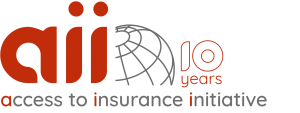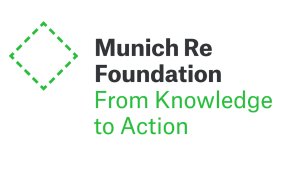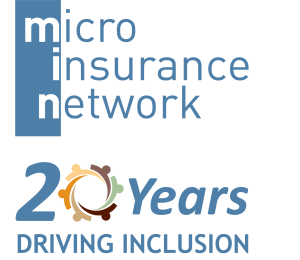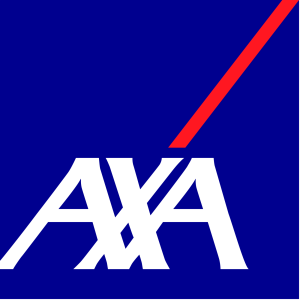Insurance for Development
A majority of insurers and distributors in traditionally underserved markets still struggle to offer insurance products that are viable for them and valuable for consumers. Capacity gaps among insurers’ staff are one of the factors inhibiting this progress.
The Impact Insurance Facility of the ILO seeks to develop a sustainable flow of high-quality capacity building programmes to insurers, distributors and other market players, as part of its mission to develop inclusive insurance markets. Among these initiatives, an online course “Insurance for Development” is offered in an attempt to bridge the capacity gaps of insurance professionals on business models and strategies of how to provide insurance solutions to the underserved markets.
Key features
LEARN ONLINE
A series of self-paced elearning modules on the elements of viable business models
RESOURCES
Tap in the knowledge of the speakers from the ILO and partners working within the inclusive insurance globally
ACTIVITIES
Learn from the experience through the case-studies and collective wisdom
Apresentação do curso
A majority of insurers and distributors in traditionally underserved markets still struggle to offer insurance products that are viable for them and valuable for consumers. Capacity gaps among insurers' staff are one of the factors inhibiting this progress. The Impact Insurance Facility of the ILO seeks to develop a sustainable flow of high-quality capacity building programmes to insurers, distributors and other market players, as part of its mission to develop inclusive insurance markets. Among these initiatives, an online course "Insurance for Development" is offered in an attempt to bridge the capacity gaps of insurance professionals on business models and strategies of how to provide insurance solutions to the underserved markets.
Perfil dos participantes
The course targets mid-to-senior-level insurance practitioners exploring and setting up inclusive insurance programmes in their organizations. Regulatory and supervisory authorities willing to support inclusive and responsible insurance in their countries are also invited to attend. The course is also designed for financial institutions and other distributors interested in inclusive insurance. Finally, it is useful for development practitioners, funding agencies and technical assistance providers supporting projects in this field.
What will I learn?
The course has five specific objectives:
- Possess criteria for pre-selecting possible distribution channels to access the low-income market and practice analyzing the available options
- Identify key factors influencing demand for insurance services and analyze its implication for market research and marketing strategy
- Reveal features that make insurance products relevant and explore the design and pricing process
- Apply a framework for analyzing claims processes, incorporating perspectives of both business viability and client value
- Formulate strategies of how to make impact insurance viable and articulate the business case for providing insurance responsibly
Course framework
The e-learning course will be implemented over a period of approximately 5 weeks and is structured around 5 content modules with activities and assignments.
An equivalent of 1 day of learning is foreseen in each calendar week as a combination of self-paced learning with activities and a webinar with a speaker. Self-learning modules can be taken flexibly, while the webinar will be scheduled as a live presentation and discussion (the webinar’s recording will be available).
- Week 1: Opening session: Impact insurance: overview and relevance to development. Module 1: Accessing new markets through alternative distribution channels
- Week 2 Module 2: Market research: Translating customer insights into improved results
- Week 3 Module 3: Product development
- Week 4 Module 4: Claims management: The moment of truth
- Week 5 Module 5: Responsible insurance and business viability
Course structure
Each of the five learning modules of the course have a fixed structure and includes the following components:
- Individual self-learning with activities, as well as group activities when applicable
- Live Webinar, with the group and ILO trainer and/or invited speakers partners of the Impact Insurance Facility of the ILO
- Forum discussions, self facilitated or facilitated by the tutors
- Express test (assessment)
Upon completion of the course, participants receive a certificate of attendance.
Course content composition
- A Live Webinar each week provides you with the content on one of the technical subjects of the module or a presentation from development partner or practitioner. All live webinars will be recorded and shared with the students in case when they cannot join it when delivered in live
- A list of Essential Readings for the module, supporting the content of the module and the webinar.
- Activities and Case studies for an individual work or group work
Webinar speakers
We pride ourselves in having an excellent range of high quality speakers join our webinars, many of whom are leaders in inclusive insurance. This year we are excited to announce that our list of webinar speakers includes: Craig Churchill (the ILO’s Impact Insurance Facility), Garance Wattez-Richard (AXA), Katharine Pulvermacher (the Microinsurance Network), Dirk Reinhard (Munich re Foundation), MK Balachandran (SBI), Indira Goplalakrishnan (Inclusivity Solutions), Michal Matul (AXA), Melinda Grace M. Labao (Pioneer Insurance), Gopinath Karat (ex-IFFCO Tokio), Sicco van Gelder (PharmAccess), Tara Chiu (UCD), Jackline Chemutai (Radiant) and Enock Singoei (Syngenta Foundation), speakers organised by the InsuResilience Investment Fund and others. Opportunity for Q&A will be provided. Sessions will be facilitated by ILO Technical Specialists Aparna Dalal, Lisa Morgan and Pranav Prashad.
Why should I join?
- This is your time to think through your company’s strategy and operations in underserved markets, exchange ideas with the peers confronted with similar challenges
- The course is practical in nature, providing real tools and insights (including – on technological innovations) and drawing out the wisdom and experience already gained by the industry
- Case-studies and examples from the world’s leading impact insurance providers
Scholarship opportunities
About the ILO’s Impact Insurance Facility
Uninsured risk has devastating consequences on future generations and constraints their entrepreneurial potential. However, in many developing countries, the insurance industry is not yet fulfilling its potential.
The ILO’s Impact Insurance Facility works to enable the insurance sector, governments, and their partners to embrace impact insurance to reduce households’ vulnerability, promote stronger enterprises and facilitate better public policies.
ITC ILO programme in Social Finance
- If you wish to receive updates on Social Finance training programmes of the ITC ILO, sign up for the news here choosing Social Finance from the list of suggested themes.
- The ITC ILO portfolio of courses on Social Finance theme is available on the ITC ILO Social Finance page.

